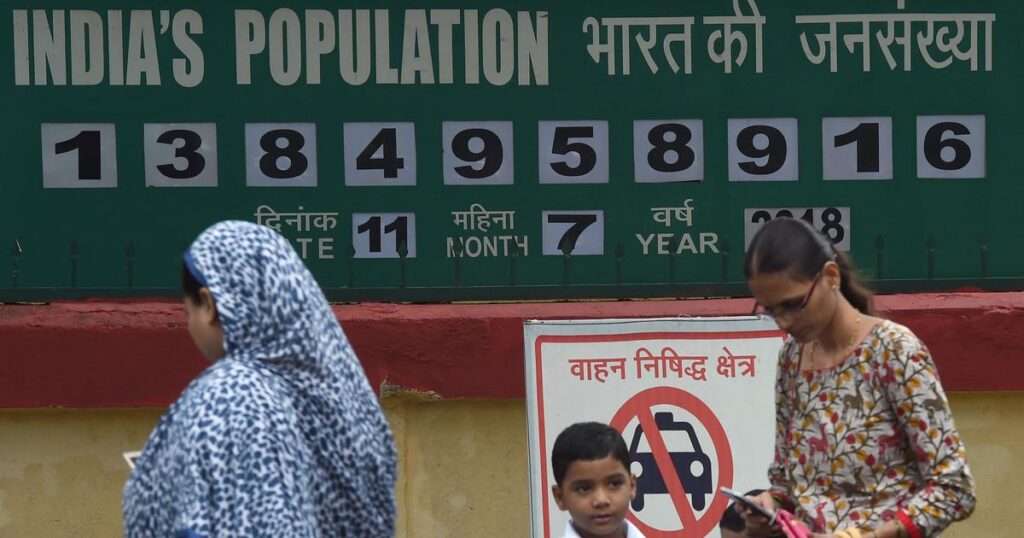India’s decennial Census, a monumental undertaking that has been conducted every 10 years since 1881, has been postponed yet again. Initially scheduled for April 1, 2020, the first phase of the current Census fell victim to the COVID-19 pandemic. Now, the latest development indicates that the exercise will be further delayed until at least October 2024, pushing back not only the collection of crucial demographic data but also the implementation of key policies like the reservation of 33% seats for women in legislatures.
A Chain Reaction of Delays
The latest extension, announced on December 30, 2023, by the Additional Registrar General of India, marks the ninth such postponement. This decision effectively rules out the possibility of conducting the Census before the 2024 general election, expected to be held in April-May next year. The delay has a domino effect, impacting various aspects of governance and representation.
One of the most significant consequences is the postponement of the implementation of the 128th Constitutional Amendment Act, 2023, also known as the Nari Shakti Vandan Adhiniyam. This Act mandates the reservation of one-third of seats for women in the Lok Sabha (lower house of Parliament) and State Assemblies. However, its actualization hinges on the completion of delimitation, a process of redrawing constituency boundaries based on the latest Census data. With the Census now pushed back, the women’s reservation law will also have to wait.
Census Data Vacuum Hinders Policymaking

Beyond the political implications, the lack of fresh Census data creates a significant data vacuum. In the absence of updated demographic information, government agencies are forced to rely on the 2011 Census data, which is now over a decade old. This outdated information hinders effective policymaking and allocation of resources, potentially jeopardizing the targeting and efficacy of various welfare programs and subsidies.
The reasons behind the repeated delays remain unclear. While the initial postponement was attributed to the pandemic, the subsequent extensions haven’t been accompanied by any official explanation. This lack of transparency raises concerns about the rationale and efficiency of the Census process.
Incomplete Picture: Missing Reports and Stalled Questions
Adding to the opacity, the office of the Registrar General of India and the Census Commissioner of India have also not released two key reports: the registration of births, deaths, and causes of deaths for the years 2021, 2022, and 2023. The “Vital Statistics of India Based On The Civil Registration System” report for 2020 was only released in May 2022, highlighting the backlog in data dissemination.
Furthermore, the 31 questions for the first phase of the Census, the Houselisting and Housing Schedule, were finalized in January 2020. However, the 28 questions for the second phase, the Population Enumeration, are yet to be notified. This incomplete picture raises questions about the overall preparedness for conducting the Census even when it eventually resumes.
Also Read: Modi Declares World Eager for Ram Temple Consecration
The Road Ahead: Transparency and Efficiency Needed
The repeated delays in India’s Census raise concerns about the efficiency and transparency of the process. To restore public trust and ensure the smooth conduct of the upcoming exercise, the following steps are crucial:
- Clear Communication: The government must provide a clear explanation for the ongoing delays and outline a concrete timeline for the completion of the Census.
- Improved Data Management: Streamlining data collection, processing, and dissemination mechanisms is essential to ensure timely availability of accurate and updated information.
- Technological Integration: Embracing technology for data collection and analysis can potentially expedite the Census process and improve its accuracy.
A comprehensive and updated Census is not just a statistical exercise; it is the bedrock for informed policymaking, resource allocation, and effective representation. Addressing the current challenges and ensuring a smooth and timely Census is vital for India’s future trajectory.
It is important to note that the delay in the Census has implications beyond those mentioned in the original article. For example, the delay could also impact the allocation of funds under various government schemes, as these are often based on population data. Additionally, the delay could create uncertainty for businesses and investors, as they rely on accurate demographic data for planning and decision-making.
